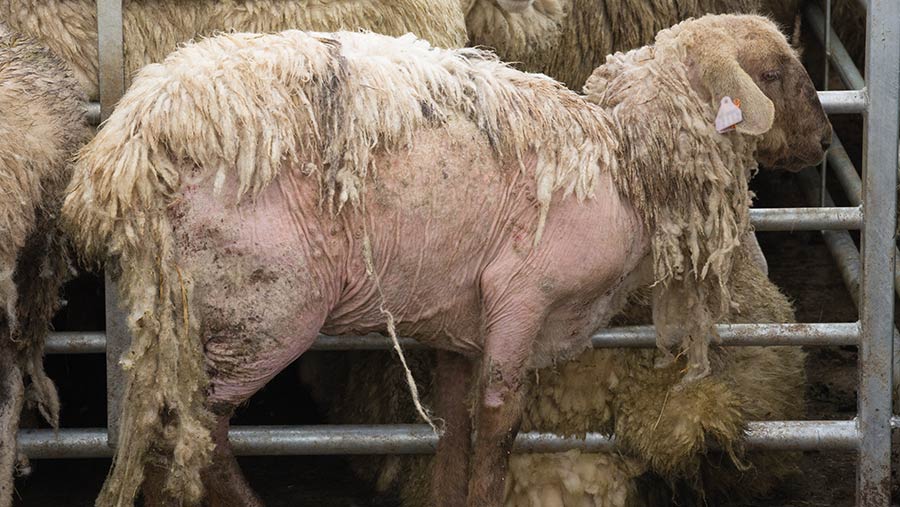Sheep scab costing industry millions every year
 © Tim Scrivener
© Tim Scrivener Testing incoming sheep for scab could help farmers cut medicine bills and avoid needless treatment.
This is the advice from Zoetis, which estimates the cost to the UK sheep industry at £78m-£202m/year, as well as being a welfare concern.
About 9% of flocks are thought to be infected annually, with rates much higher in certain hotspot areas, so quick identification and treatment is key.
See also: Test breakthrough paves way for sheep scab vaccine
Using the Sheep Scab Blood Elisa (enzyme-linked immunosorbent assay) test can help farmers identify the presence of antibodies produced in response to infection as early as two weeks after exposure, explains Lesley Stubbings, independent sheep consultant.
“You cannot tell simply by looking at sheep if they are carrying scab mites,” she says. “Clinical sheep scab can take weeks, if not months, to present itself, by which time much of the flock can be infected.
“The Sheep Scab Elisa test means scab can’t hide from us anymore.”
Testing advice
The advice is to quarantine any new sheep entering the flock for three to four weeks and blood-test 12 animals from each group two weeks into the quarantine period. The test is estimated to cost about £84 for every 12 animals.
The results of this testing will show whether a group of sheep has been exposed to scab and if treatment is required.
Where scab is not detected, this presents an immediate economic saving – as well as minimising the risk of resistance problems with treatments, it also prevents further infection to the wider flock.
Where treatment is needed, farmers have the choice of using an injectable group 3-ML or plunge dipping using an organophosphate dip.
